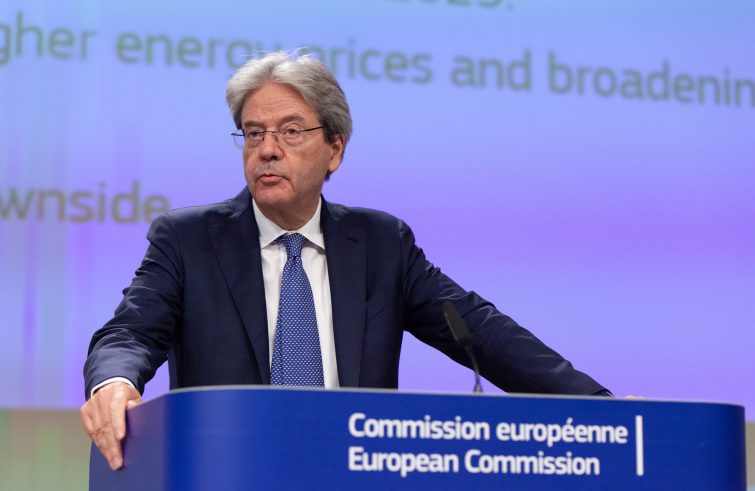
“The European economy continues to show resilience in a challenging global context”. Lower energy prices and a strong labour market “supported moderate growth in the first quarter of 2023, dispelling fears of a recession”. This “better-than-expected start to the year raises the growth outlook for the EU economy to 1.0% in 2023 (0.8% in mid-winter forecasts) and 1.7% in 2024 (1.6% in winter)”. Upward revisions for the euro area are of a similar magnitude, with GDP growth now expected at 1.1% and 1.6% in 2023 and 2024 respectively. As for inflation in the euro area, the Spring Economic Forecast presented by Commissioner Paolo Gentiloni in Brussels today shows that it is projected at 5.8% in 2023 and 2.8% in 2024. “The European economy is in better shape than we projected last autumn”, Commissioner Gentiloni said. “Thanks to determined efforts to strengthen our energy security, a remarkably resilient labour market and easing supply constraints, we avoided a winter recession and are set for moderate growth this year and next”. Also, “inflation has proved stickier than expected but it is forecast to decline gradually over the remainder of 2023 and in 2024. And the improvement in public finances is set to continue as energy support measures are progressively withdrawn”. Yet, the Commissioner stressed, significant risks remain as “Russia’s brutal invasion of Ukraine continues to cast a shadow of uncertainty over the outlook. We must remain vigilant and stand ready to respond to any future shocks with the same unity and determination that saw us through these past three stormy years”.
